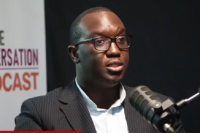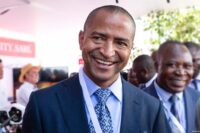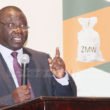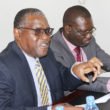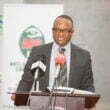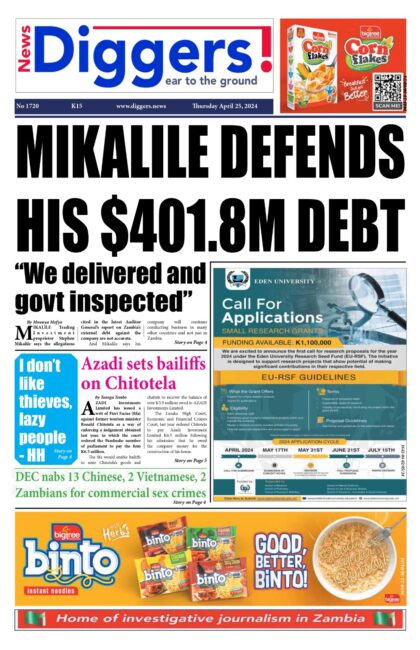Economist Professor Oliver Saasa says it raises fundamental questions of what sort of image Zambia is trying to create for itself when government officials take turns in criticising its own oversight institution like the Financial Intelligence Centre (FIC).
And Prof Saasa says it is important that the FIC publicises the Trends Report because doing so would help protect Zambia’s Treasury from being looted.
Commenting on the incessant attacks by government officials on the FIC, Professor Saasa observed that repeated attempts to silence critical information on the rampant abuse of public funds sent the wrong signal to international investors who needed to access accurate information on the status of Zambia’s economy.
“When you find senior government officials taking turns to question the system that is governmental, it raises fundamental questions of what sort of image we are trying to create? For those that are looking at Zambia as a destination for investment, for trade or anything. The image of the country is determined by the behaviour of its citizens and most importantly the behaviour of its government. If the government appears to condone or try to protect criminality, then you cannot blame somebody who warns government that, ‘if you do that, investors won’t come’ because I have heard people saying ‘no, you shut up and hide everything because investors won’t come.’ Investors are much smarter than that. If you are telling lies, lies have very short legs, they will discover the truth because the world is so open and we are a member of the global village. What is important is to avoid, and government must be in the forefront to stop people that commit transgression,” Prof Saasa said.
He said those attacking the FIC for publishing the Trends Report should equally criticise the Auditor General’s Office for naming ministries and permanent secretaries involved in misappropriating public funds.
“The Financial Intelligence Centre must be seen as an integral part of government’s effort to ensure that those that must pay back, those that should not be engaged in corruption acts should be cornered to be able to be made to account for their misdeed. When you talk about reporting to the public and that you can only review who has been implicated after that person is convicted, that goes against a lot of things. Firstly, when you talk like that, you must as well say that even the Auditor General’s Office should not report anything until investigations are concluded. And yet no one makes reference to the Auditor General’s Report. The Auditor General’s Report like anywhere in the world…subscribe like the Financial Intelligence Centre’s reporting. It’s a standard protocol and any government official who they have…[in] transgression against the laws of the land, whether by way of misappropriation or misallocating and failure to account for public resources, those people must be brought to book,” Professor Saasa said.
“The Auditor General names ministries, permanent secretaries before Parliament, which oversights the Executive. Before the Public Accounts Committee, public officers are grilled publicly, in camera. They are named and we see their faces and sometimes they are sent back to go and bring proper information. Why is someone not complaining about the Public Accounts Committee of Parliament? Because they are naming names and they are doing it in public for everyone to see in camera. And those are supposed to be investigated. So, for me, this does not augur very well going down the line in terms of to what extent are we projecting ourselves as a country that is ready for business, as a country that is transparent, accountable, as a country whose laws and rules and procedures would not condone injustice.”
Professor Saasa also said as a public institution, the FIC was mandated to inform the public about any suspicious financial crimes.
“So, if you move on to how are they reporting? If the Financial Intelligence Centre board are allowed to report to the public, [but] I haven’t looked at the legislation, then allow them to report. If the reporting is such that they are jeopardising investigations, you do not stop the public from knowing, but you have to find ways of making sure that the public must know because these institutions are public workers and the public must know. You must find ways of ensuring that no one who is being investigated compromise the process, but it does not mean that the public must not know. And I am not only talking about the Financial Intelligence Centre only, I am talking about all institutions of oversight like DEC, the Auditor General, Anti- Corruption Commission. Those are institutions that bring in sanity and protect the interest of the Zambian people,” Professor Saasa noted.
And Prof Saasa, the Premier Consult Limited chief executive officer, said it was important that the FIC reports publicly because doing so would protect Zambia’s Treasury from being looted.
“The Financial Intelligence Centre is a government wing. It came as a result of Zambia having applied and accredited to an international platform that expects monitoring and reporting on financial flows, especially financial flows that may be linked to terrorism activities and also financial flows that may be illegitimate. You are aware that we have so many international flows that border on countries that have been robbed of financial resources. There are also claims and many of them justified suggesting that there is money that leaves the country that is supposed to be in the Treasury. Everybody agrees that we must improve upon our reporting capacity at a national level to make sure that the Treasury is protected in terms of receipt of money that’s due to it. Whether this is as a result of corruption or corrupt acts, whether it is as a result of illicit trading, failure to adhere by the laws of the land, government saw it appropriate to have systems of oversight to make sure that those symptoms don’t happen,” said Prof Saasa.
“Now, where the charge of impropriety is very serious, investigative wings are expected to move in. And the Zambian law says ‘everyone is innocent until proven guilty,’ it means that they will be cleared and their names will be sanitized. That is exactly what happens even in the judicial system. You do not hide those that are accused and go to the High Court, to the Supreme Court and to the Court of Appeal. They know them and their names and they go and stand in the Court. The court system is open and transparent. You cannot say that, ‘until someone is found guilty is when you will know them’.”




